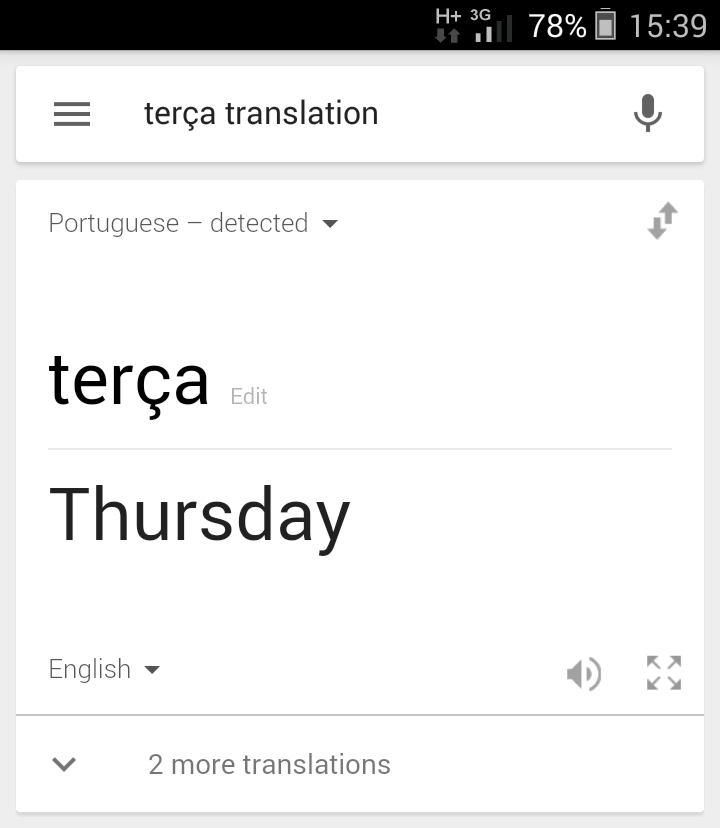Top Tips for Perfect English to Portuguese Translation Provider
Attaining phenomenal English to Portuguese translation requires more than mere word-for-word conversion; it requires an understanding of cultural nuances and linguistic complexities. Choosing qualified translators that are both culturally mindful and proficient is critical - English To Portuguese Translation. What other crucial aspects should be thought about to raise translation top quality further?
Understand Cultural Nuances
When translating from English to Portuguese, understanding the social nuances is important for generating a resonant and precise message. The Portuguese-speaking world varies, incorporating various areas, each with its distinct custom-mades, expressions, and social norms. A translator has to be in harmony with these subtleties to make certain that the translation not just shares the designated message yet also reverberates with the target audience.
For instance, colloquial expressions in English may not have direct counterparts in Portuguese. An expression that functions well in one society can bring about confusion or misconception in an additional. Recognizing regional languages and variants, such as those found in Brazil and Portugal, is essential; words might hold various connotations or uses depending upon the area.
Additionally, cultural context plays a substantial function in translation. Consideration of historical, social, and political elements can affect language options and tone. This cultural understanding allows for the adaptation of content that straightens with regional worths and assumptions, consequently improving the performance of interaction. Ultimately, a detailed understanding of cultural nuances is crucial for delivering translations that are not just linguistically exact yet additionally culturally appropriate and engaging.
Choose Qualified Translators
Selecting qualified translators is a crucial action in making sure the precision and quality of English to Portuguese translations. A translator's expertise not only includes language effectiveness however additionally a deep understanding of cultural context, idiomatic expressions, and industry-specific terminology. When choosing a translator, focus on those with official training in translation studies or grammars, in addition to pertinent qualifications that show their expert skills.
Experience plays a pivotal duty too; translators concentrating on details fields-- such as legal, clinical, or technical-- are more probable to supply accurate translations customized to the market's standards (English To Portuguese Translation). Furthermore, consider their profile and client reviews to assess their previous job quality and integrity
Engage translators that are indigenous Portuguese speakers, as they possess an inherent understanding of the language's subtleties and local languages. This experience improves the translation's authenticity and performance.
Use Contextual Referrals

When translating, it is important to recognize colloquial expressions and cultural recommendations that might not have direct equivalents in Portuguese. Certain expressions that resonate in English may require click now adjustment to communicate the very same emotional weight or social significance in Portuguese. Utilizing contextual referrals can assist translators select the best terms and design, thereby improving the total clarity and impact of the translation.

Concentrate On Localization
Localization plays a critical duty in the translation procedure from English to Portuguese, as it ensures that the equated material is culturally suitable and appropriate to the target market. English To Portuguese Translation. This procedure exceeds plain translation; it entails adapting the content to the cultural, social, and linguistic subtleties details to Portuguese-speaking regions
Comprehending regional idioms, customizeds, and preferences is important. For example, particular phrases or recommendations that reverberate with an English-speaking target market might not have the very same effect on Portuguese speakers. It is important to consider local variants, such as Brazilian Portuguese versus European Portuguese, as each has distinctive vocabulary and stylistic differences.
Furthermore, localization encompasses formatting, such as date and time formats, money, and dimension units, which can vary considerably across cultures. This interest to detail cultivates a connection with the audience, boosting engagement and understanding.
In addition, employing local dialects and jargon can supply credibility, making the content a lot more relatable. By concentrating on localization in English to Portuguese translation, services can effectively interact their message, build depend on with their target market, and ultimately accomplish their designated purposes.
Testimonial and Edit Thoroughly
Detailed review and modifying are important action in the translation process, especially when transforming English content right into Portuguese. This phase makes sure that the translated product not just keeps the original meaning however additionally resonates well with the target market. Provided the cultural and linguistic nuances, a precise technique to assess and modifying is vital.
Begin by contrasting the original English text with the Portuguese translation, paying very close attention to context, tone, and terms. It's vital to make certain that colloquial expressions and social referrals are suitably adapted for the Portuguese target market. Involving a 2nd translator or a native sites audio speaker for this evaluation process can give very useful understandings and catch mistakes that might have been neglected.
In addition, look for grammatic precision and stylistic consistency throughout the file. Typical difficulties such as incorrect cognates or ambiguous expressions ought to be resolved to avoid misconception.
Conclusion
Achieving extraordinary English to Portuguese translation services requires an extensive approach that incorporates understanding social subtleties, choosing qualified translators, using contextual references, prioritizing localization, and performing extensive evaluations and edits. Each aspect plays a vital role in guaranteeing that translations are not just accurate yet additionally resonate with the target audience. By implementing these strategies, companies can boost the effectiveness of their communication and foster a much deeper link with Portuguese-speaking target markets.
Achieving exceptional English to Portuguese translation needs more than plain word-for-word conversion; it demands an understanding of social subtleties and linguistic complexities.Selecting qualified translators is a critical step in ensuring the precision and quality of English to Portuguese translations.Comprehensive evaluation and editing and enhancing are essential steps in the translation process, especially when transforming English material right into Portuguese.Begin by comparing the initial English text with the Portuguese translation, paying close interest to tone, terminology, and context.Attaining phenomenal English to Portuguese translation services requires a detailed technique that encompasses understanding social nuances, selecting qualified translators, using contextual references, focusing on localization, and carrying out comprehensive evaluations and edits.